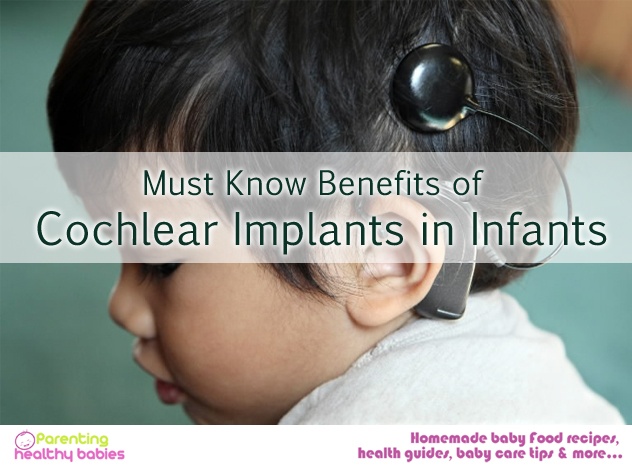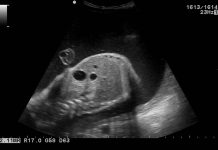Cochlear implants refer to devices that help provide sound for individuals, including adults and kids, who are not able to hear even with the help of hearing aids. Hearing aids work to make sounds louder. But, adults and children with severe to intense hearing disorders might not find the help provided by hearing aids sufficient enough to allow the ear to process the sounds.
Cochlear Implants are considered to be more successful as compared to hearing aids as it bypasses the damaged cochlea while directly stimulating the auditory (hearing) nerve.
Read More: 11 Home Remedies for Earache in Teenagers
How does a Cochlear Implant Work?
A cochlear implant works by stimulating the inner ear area using electrical signals, which sends these concerned signals to the auditory nerve, thus improving the hearing ability. Even though the sound quality received by a cochlear implant is different from what is obtained in normal hearing, a cochlear implant allows an individual to sense the sound that he/she couldn’t hear otherwise. In case of infants, use of cochlear implants enables them to sense sounds that haven’t been heard before thus developing speech and language.
Benefits of Cochlear Implants in Infants
Cochlear Implants are highly beneficial for individuals with profound hearing disorders. In case of children, cochlear implants provide amazing benefits, irrespective of their age. However, in case of infants or kids who have become deaf before they learned to speak, the success rate increases if the implantation is done at an early age.
Most importantly, infants who are deaf and have got cochlear implantation done at an early stage, begin to receive auditory signals at a point of time when their brain is ready to learn the language specifically.
Talking further about the benefits of cochlear implants in infants, early implantation in infants with profound hearing impairment helps to develop the hearing and speech in a manner that is similar to normal peers. In such cases, the spoken language emerges in a natural like manner.
Adding further, for kids who have had hearing experience and lost their hearing at some later point, a simple rule applies – the shorter the period of deafness, the more the chances of benefitting from a cochlear implant. It has even been proven through research studies that children implanted at a young age, as young as the first year of their life, have the tendency to show better performance.
Candidacy for Cochlear Implant
The candidacy criteria for cochlear implants have changed a great deal than what they used to be at the time when they were introduced. Recently, cochlear implants have achieved the Food and Drug Administration (FDA) for infants as well as older children.
The basic criteria for cochlear implant in children goes as stated ahead.
Read More: Home Remedies to Treat Ear Infection in Kids
Hearing Aid Trial
- In the case of kids with meningitis, a shorter hearing aid trial is recommended. In fact, the trial can be waived for bony growth in the cochlea following meningitis might create issues with implantation.
- Generally, it is suggested that a child should get used to hearing aids at least 3-6 months before deciding on implant candidacy.
- In some cases of meningitis, very few in fact, the physician might choose to proceed with implantation before the child crosses the first year of his life. This is usually done to ensure the sufficient insertion of electrodes into the cochlea, way before the bony growth occupies the cochlea.
Hearing Loss Degree
- Kids between 12-18 months – profound sensor neural hearing loss of 90 decibels or higher in both the ears.
- Kids 24 months of age or older – severe to profound sensor neural hearing loss of 70 decibels or higher in both ears.
No Benefit from Appropriately Set Hearing Aids
The kids who do not benefit from previously set hearing aids do not fall under the candidacy for cochlear implants. For example,
- Incapability to react to environmental sounds when wearing amplification.
- Inconsistent response to one’s name in a silent environment.
Medical Contraindications
Candidacy for cochlear implants requires having no medical contraindications. These contraindications include:
- Absence of auditory nerve
- Active middle ear infections
- Medical conditions or developmental delays that hinder the participation in aural habilitation
Read More: 11 Proven Essential Oils for Ear Infection in kids
Environment – Home and Education
To be a candidate for cochlear implants, the child needs to be in an educational or rehabilitative environment where the auditory development (speaking and listening) skill is emphasized. Educational or rehabilitative environments work to encourage auditory skill development help to have a positive impact on the child’s progress.
Some other important factors include:
- Positive family environment
- High motivation on the part of family or/and primary caregivers to encourage learning and language skills
- Realistic expectations













